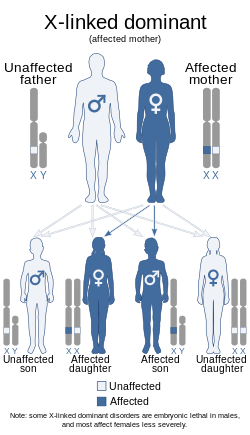Mental retardation and microcephaly with pontine and cerebellar hypoplasia
Editor-In-Chief: Prab R Tumpati, MD
Obesity, Sleep & Internal medicine
Founder, WikiMD Wellnesspedia &
W8MD medical weight loss NYC and sleep center NYC
| Mental retardation and microcephaly with pontine and cerebellar hypoplasia | |
|---|---|

| |
| Synonyms | MICPCH |
| Pronounce | N/A |
| Specialty | Medical genetics |
| Symptoms | Intellectual disability, microcephaly, pontine hypoplasia, cerebellar hypoplasia |
| Complications | N/A |
| Onset | Congenital |
| Duration | Lifelong |
| Types | N/A |
| Causes | Genetic mutation |
| Risks | Family history |
| Diagnosis | Genetic testing, MRI |
| Differential diagnosis | Other genetic disorders |
| Prevention | N/A |
| Treatment | Supportive care, rehabilitation |
| Medication | N/A |
| Prognosis | Varies |
| Frequency | Rare |
| Deaths | N/A |
Rare genetic disorder
Mental retardation and microcephaly with pontine and cerebellar hypoplasia (MICPCH) is a rare genetic disorder characterized by intellectual disability, microcephaly, and underdevelopment of the pons and cerebellum in the brain. This condition is associated with mutations in the CASK gene, which is located on the X chromosome.
Presentation
Individuals with MICPCH typically present with severe intellectual disability and developmental delay. Microcephaly, a condition where the head circumference is significantly smaller than average for the person's age and sex, is a hallmark feature. The pons and cerebellum, parts of the brain responsible for motor control and coordination, are underdeveloped, leading to hypotonia (reduced muscle tone) and ataxia (lack of voluntary coordination of muscle movements).
Genetics
MICPCH is caused by mutations in the CASK gene, which encodes a protein involved in synaptic transmission and neurodevelopment. The disorder follows an X-linked dominant inheritance pattern, meaning that a single copy of the mutated gene on one of the X chromosomes can cause the disorder. This pattern of inheritance is more commonly observed in females, as males with the mutation often do not survive to birth.
Diagnosis
Diagnosis of MICPCH is based on clinical features, neuroimaging, and genetic testing. Magnetic resonance imaging (MRI) of the brain typically reveals pontine and cerebellar hypoplasia. Genetic testing can confirm mutations in the CASK gene.
Management
There is currently no cure for MICPCH, and treatment is supportive and symptomatic. Management may include physical therapy, occupational therapy, and speech therapy to address developmental delays and improve quality of life. Regular monitoring by a multidisciplinary team is essential to address the various medical and developmental needs of affected individuals.
Prognosis
The prognosis for individuals with MICPCH varies depending on the severity of the condition. Most individuals have significant developmental challenges and require lifelong care. Life expectancy may be reduced, particularly in males who are more severely affected.
See also
Transform your life with W8MD's budget GLP-1 injections from $125.
W8MD offers a medical weight loss program to lose weight in Philadelphia. Our physician-supervised medical weight loss provides:
- Most insurances accepted or discounted self-pay rates. We will obtain insurance prior authorizations if needed.
- Generic GLP1 weight loss injections from $125 for the starting dose.
- Also offer prescription weight loss medications including Phentermine, Qsymia, Diethylpropion, Contrave etc.
NYC weight loss doctor appointments
Start your NYC weight loss journey today at our NYC medical weight loss and Philadelphia medical weight loss clinics.
- Call 718-946-5500 to lose weight in NYC or for medical weight loss in Philadelphia 215-676-2334.
- Tags:NYC medical weight loss, Philadelphia lose weight Zepbound NYC, Budget GLP1 weight loss injections, Wegovy Philadelphia, Wegovy NYC, Philadelphia medical weight loss, Brookly weight loss and Wegovy NYC
|
WikiMD's Wellness Encyclopedia |
| Let Food Be Thy Medicine Medicine Thy Food - Hippocrates |
Medical Disclaimer: WikiMD is not a substitute for professional medical advice. The information on WikiMD is provided as an information resource only, may be incorrect, outdated or misleading, and is not to be used or relied on for any diagnostic or treatment purposes. Please consult your health care provider before making any healthcare decisions or for guidance about a specific medical condition. WikiMD expressly disclaims responsibility, and shall have no liability, for any damages, loss, injury, or liability whatsoever suffered as a result of your reliance on the information contained in this site. By visiting this site you agree to the foregoing terms and conditions, which may from time to time be changed or supplemented by WikiMD. If you do not agree to the foregoing terms and conditions, you should not enter or use this site. See full disclaimer.
Credits:Most images are courtesy of Wikimedia commons, and templates, categories Wikipedia, licensed under CC BY SA or similar.
Contributors: Prab R. Tumpati, MD

